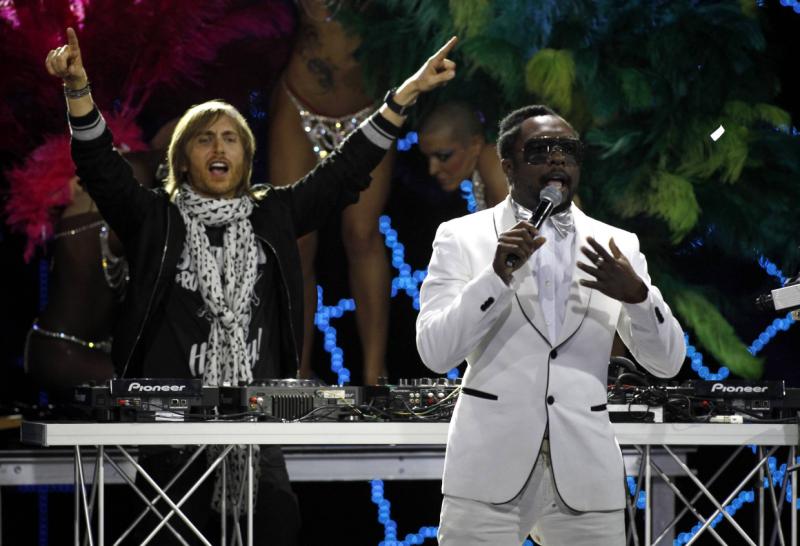By KEVIN TAN
alltherage@thestar.com.my
If there is one rule for music, it’s that it always evolves and the latest music trend to hit the dance floors in Malaysia – and around the world – is Electronic Dance Music (EDM).
Even though this genre has been around since the 70s disco era and even survived the 80s underground movement, it is only now that it has become mainstream and acceptable, especially here.
Oh, and just because the genre is old … it doesn’t mean that EDM is similar to the groovy tunes our grandparents boogied to. Nope, not at all.
To untrained ears, EDM may sound like an alien population’s call for help but in actuality, there are several EDM sub-genres such as house, techno, hardstyle and dubstep which music are distinctive to those familiar with the genre.
“EDM wasn’t something that everyone knew about, it was very underground (back in the days). I also think it’s the natural progression of music trends and people’s change in music taste. They always want more energy in music,” said DJ Blink, of the popular Blink and Goldfish deejaying duo.
Blink, whose real name is Lau Hoe Yin, has been into deejaying ince 1998 and explained that the genre could have become more recognisable after pop artistes lent their names to several EDM tracks.
Deejays such as David Guetta and Afrojack have successfully collaborated with pop artists like Usher, Taio Cruz, Nicki Minaj and Snoop Dog (or now Snoop Lion), and created several tracks that have hit the mainstream charts. This is turn have encouraged other pop artistes like Taylor Swift, Rihanna, and will.i.am to work with dance music producers and incorporate EDM elements in their music.
The rise of the deejays
Blink’s partner, Alvin Teoh, aka DJ Goldfish, 31, said that people are more aware of the EDM culture nowadays, and many of them are interested in becoming deejays themselves.
“There’s a crazy number of deejays out there today, and it’s also way easier to learn how to become a deejay nowadays compared to years ago,” said Goldfish, who owns Goldsounds DJ Division which trains people in the art of deejaying.
The music institution, which has been running for seven years, saw an increase of 300 per cent in student registrations in the past year alone.
Bo Amir Iqram, aka Mr Fluff, has been in the EDM scene for at least seven years now and is a self-taught deejay as well as a music producer.
“You know, last time, everyone wanted to be in a rock band, and then everyone wanted to do hip-hop, and now it’s no surprise that people have the EDM sound in their music.
“Go and listen to the current top 100 hits, and I won’t be surprised if you’ll hear EDM elements in them,” said Bo.
According to Goldfish, technology has made it easier and more accessible for people to pick up deejaying. Blink also added that online channels like YouTube serve as great self-learning tools. “Nowadays, all you need is a laptop, a CDJ (a CD player that allows you to control the music from CDs, an emulation of a tradition vinyl control surface) or DJ digital controller (analog control of music from the computer by using a deejay software), and you’re good to go,” he said.
Who’s your deejay now?
Deejaying schools have been sprouting rapidly in urban areas and the music equipment are also easily attainable but attending classes and owning turntables aren’t just the makings of a deejay.
Victor Chan, 23, who goes by his stage name DJ Victor Trixter, finds that there are many people who want to become deejays, but do not actually have the passion for the music.
“(They get into it) because they see it as a job opportunity or because it seems like a cool thing to do, but if it’s not about the music, then they are missing the point of deejaying,” said Victor, who had learned to deejay since he was 15.
He believes that deejaying isn’t just an act – it’s a way to express one’s self.
“Deejaying isn’t just about mixing a few tracks and beats together and adding cool effects to it. You’re telling a story with your mix. If you go to somewhere and the deejay plays something you can hear on a CD in your car or at home, then what’s the point?”
“It’s very easy to put on the songs everyone wants to hear and make them happy, but it’s another thing to be creative and make your mix stand out,” said the deejay, who is currently working on producing his first single.
Originality is also very important when it comes to EDM that is the only way deejays could carve a name for themselves in this competitive industry.
Deejaying duo Blink and Goldfish, find that it is very important for deejays to not only spin other musicians’ work but to also be able to make the music as well.
“Apart from being a deejay, it’s also important to create your own music. If you’re just a deejay who is playing other people’s music, you’re just like a band who only play cover songs,” said Goldfish.
They believe that deejaying and producing goes hand in hand and in fact is the only way for a deejay to make it in the industry today.
“If you play your own music, your following grows because people don’t just see you as a deejay but recognise you as an artist as well. When people enter the club, they would want to hear your music. You are (the main) act,” said Blink.





Tell us what you think!